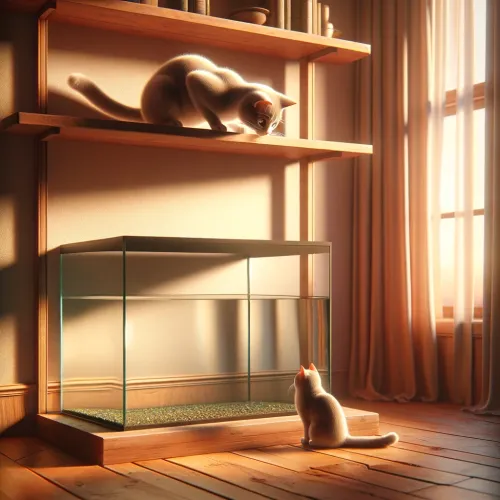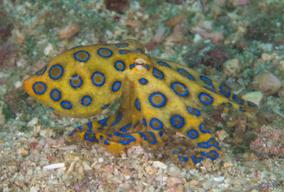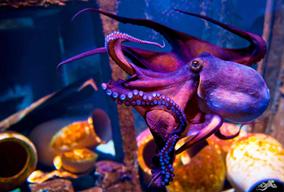Do octopuses have souls?
Can you imagine watching an animated series, like The Simpsons, while an octopus excitedly watches from its aquarium next to you? This isn't just my imagination, and although I believe in the high intelligence and abilities of octopuses, I would never have thought of this if not for the book "Do Octopuses Have Souls?" I even pondered where exactly to place the aquarium and how to communicate the new reality of having an octopus at home.
Indeed, aside from animated series and films, octopuses also enjoy watching sports broadcasts, which could be a good reason to get one, but I haven't made that step yet.
If you are a nature enthusiast and want to learn about the incredible abilities of octopuses, relax and get to know octopuses (and not just them) that inhabited the Boston's New England Aquarium at the time the author was writing, this book will certainly capture your interest.
The author takes readers through her personal introduction to octopuses from the beginning, adding examples and references for all the facts she explores. She describes what it feels like when tentacles touch you, how octopuses examine human skin, actually tasting it with their tentacles, and how they change color according to their mood. White means the octopus is calm, red indicates excitement, and during problem-solving, they can rapidly go through various color reactions, similar to a person biting their lip when anxious.
What does an octopus feel like to the touch? Slimy. The author also addresses the general assertion that the underwater world is a truly slimy place, which has its logical reasons.
Mucus helps reduce friction when moving underwater, catch and eat food, maintain healthy skin, and escape predators.
Of all the examples regarding the amount of slime, the so-called slimefish, which lives on the ocean floor and can produce up to 20 liters of slime in just a few minutes at a length of up to 45 cm, making it essentially uncatchable. It always slips away. When there's too much slime even for it, it "blows its nose" by making a knot at the end of its tail and sliding its body through it. Its body structure is also interesting, as it has a skull but no spine. It is unique.
Nevertheless, let's return to octopuses. Slime helps them squeeze through narrow spaces and even aids their movement on land. The book mentions several times that an octopus aquarium needs to be properly secured because the smallest crack is an opportunity for escape. In the wild, thanks to the slime, an octopus can move on land in humid climates for up to 30 minutes.
Each tentacle of an octopus is fully autonomous (decides without needing to engage the brain). It's also interesting that octopus ink contains dopamine, so it can keep its prey, like favorite crabs, stupefied before consuming them.
You might have heard about their mimicry, where octopuses change shape and color. For a moment, an observer might see passing clouds, which seem to indicate the octopus's movement. Later, along with the author, we see stripes or dots in various colors. Another example discusses Macrotritopus defilippi, an Atlantic species of sand octopus that one moment might mimic a flounder, then transform into several poisonous sea snakes, finishing its performance as a flying gurnard. The entire show lasts no more than a few seconds.
Another treat and confirmation of octopus intelligence and abilities is their documented use of coconut shells as portable shelters, which they close whenever danger is nearby. Or their ingenious solutions to puzzles, but you really must look into the book for that.
The book is filled with information about relationships between humans and animals, personal stories told by employees of the Boston sea aquarium and the author herself, illustrating how such interactions can change the perception of the world. The author does not hesitate to describe other ocean-dwelling animals and highlight their capabilities.
I hope this review with examples of what can be found not only in the book but also in the ocean itself will delight you as much as it did me and be a further impetus for more exploration of aquatic worlds.
Montgomery, S. (2015). The Soul of an Octopus: A Surprising Exploration into the Wonder of Consciousness. Atria Books.





